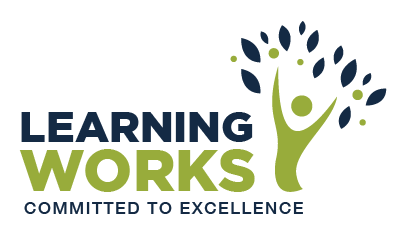Course Description
This qualification is built in line with the National Occupational Standards in relation to hospitality in Malta and successful candidates should be eligible for employment in variety of contexts in the food and beverage industry.
The objectives of this award is to take employees to the next level in their understanding of what it means to provide excellent quality service and offer outstanding service to all customers and guests, thus improving their effectiveness and the company’s competitiveness in the hospitality industry.
The overall objectives of the Award are to engage students in learning all that is relevant to their profession and to further develop a range of skills and techniques, personal skills and attributes necessary for a successful career.
Learning Outcomes
By the end of the course programme, students will be able to:
- Understand the key aspects of F&B Service.
- Understand professional competencies and legal requirements.
- Understand concept of food, preparation, production and service.
- Understand range of beverages- preparation, production and service .
- Work effectively in a range of food and beverage settings.
- Set up, serve, maintain and clear tables in a range of settings.
- Apply all health and safety procedures.
- Work effectively as a team member with colleagues and superiors.
- Develop personal learning and improve their professional skills.
- Work professionally in a range of food and beverage contexts.
- Acquire necessary key skill from preparation, set up, serving and clearing.
- Provide excellent customer and guest service.
Target Candidates
The Award is aimed at students who are currently working or desire to work in hospitality and waitering profession.
| Course Code | Duration | Credit Value | Next Intake | FT/PT |
|---|---|---|---|---|
| LW/H/001 | 6 months | 24 ECTS | N/A | PT |
| Contact Hours | Placement Hours | Self Study Hours | Assessment Hours | Total Learning Hours |
|---|---|---|---|---|
| 120 | 46 | 240 | 194 | 600 |
Mode of Training
This Award is delivered through a series of interactive teaching sessions with an emphasis on group and practical activities. Case studies and work examples will be discussed throughout the course.
Assessment
Written examinations, assignments, individual and group presentations, case studies. Students will also be assessed on their portfolio of evidence for each unit.
Awarding Body
Learning Works
Course Structure
Module 1: Introduction to Hospitality and Catering (1 ECTS)
The purpose of this unit is to provide learners with an understanding of the hospitality industry, the way in which food and beverage service links to the overall industry and the skills and information they require to seek employment within the industry. Learners will gain an understanding of the scale and diversity of the hospitality industry and specific job roles and careers relating to food and beverage service. This is a customer facing industry and this unit will provide learners with an understanding of the key employability skills required for work.
Module 2: Service Etiquette and Styles of Service (1 ECTS)
Etiquette in the food service industry focuses on the ability to recognise the importance of personal presentation and professional behaviours that portray a positive image of the establishment, the industry and job role of individual staff members. When a customer visits a restaurant the food service team should provide a meal experience to remember through their product knowledge and skills. The purpose of this unit is for learners to develop and implement practical skills for a range of food service styles found within the hospitality industry.
Module 3: Sequence of Service (3 ECTS)
Most hospitality organisations whether hotels or restaurants use standard operating procedures which differ from establishment to establishment. The focus of learning here is understanding key aspects and best practices required from preparation to end in providing a professional and comprehensive sequence of service. This involves not only the practical serving skills but also teamwork with colleagues and customer service in ensuring customer needs are met in a professional and timely manner. Upon completion learners will be able to carry out the necessary knowledge and skills to prepare, carry out and complete full sequence of service.
Module 4: Beverage Knowledge and Service (4 ECTS)
The purpose of this unit is to provide learners with knowledge of beverages, their characteristics, origins and different styles as well as developing knowledge about their production methods. It is important that learners also have an understanding of legislation affecting the sale of alcoholic beverages and the consequences of non-compliance.
Module 5: Food: Knowledge (1 ECTS)
The purpose of this unit is to build the learner’s knowledge of food typically included in menus from ingredients to cooking techniques in order to enhance the customer experience with appropriate level of food knowledge. Following completion of this unit the learner will possess the necessary knowledge and skills to present, explain and serve food items and meet any special dietary requirements requested by customers.
Module 6: Food Preparation and Production (3 ECTS)
This aim of this unit is to introduce learners basic food operations, give them the opportunity to develop their understanding, knowledge and skills through competence based practical skills in a working kitchen environment. Learners are introduced to basic technical skills, styles, equipment and procedures, specialized and classical forms of kitchen preparations as well as theoretical issues covering a broad range of food knowledge, basic organization, menu composition and hygiene.
Module 7: Health and Safety (1 ECTS)
The unit provides learners with the skills and knowledge
required to carry out their work in compliance with
the health and safety requirements. This covers the
health & safety roles and responsibilities of individuals
working in catering and hospitality and of the practical
implementation of these responsibilities. Learners will
gain an appreciation of the legal responsibilities involved
in their own health & safety as well as the health & safety
of other people including colleagues and customers.
The unit also outlines procedures to be followed in the
event of accidents and emergencies and highlights the
importance of reporting and recording procedures.
Module 8: HACCP, Food Handling and Allergies (2 ECTS)
The purpose of this unit is to highlight the importance of a systematic approach to eliminating food safety hazards and ensure the place of work meets all the legal requirements with regard to hygiene in food establishments and prevention of food poisoning. The focus of this unit is to build learners knowledge of the importance of implementing a food safety management system based on HACCP principles. HACCP (Hazard Analysis Critical Control Points) assesses each step in food manufacture for potential food safety hazards, and then introduce practices and procedures to eliminate or reduce the risk of these hazards occurring.
Module 9: Understanding Guests and Customers: from Hosting to Handling Complaints (3 ECTS)
The purpose of this unit is for learners to acquire the professional behaviours and attitude that ensure a positive customer experience and great customer satisfaction. Throughout this unit learners will examine the characteristics and benefits of excellent customer service. They will examine the impact of behaviours, interpersonal skills and team working in creating a work environment that is conducive to providing good customerservice. Learners will understand the ways in which they are able to expand and extend the relationship with their customers, by persuading them to make use of additional services or products that the organisation can offer. Within this unit they will learn how to recognise when there is a problem and the steps to take in order to resolve it or if necessary escalate to the appropriate person.
Module 10: Communication and Teamwork for Quality Service (2 ECTS)
One of the key elements of any business or organization is effective communication and teamwork and this is more so for the hospitality and catering sector. This unit will enable learners to make a useful contribution to the work of a team, where the team includes line manager and/ or supervisor as well as the other people working at the same level. Learners will be exposed to how to accurately follow instructions, help others when they need help, communicate with the people they work with, obtain feedback on what they do well and where learners could improve, and continue to learn and develop themselves.
Module 11: Banqueting and Events (3 ECTS)
The art of the table is no better expressed than banqueting and events. The aim of this unit is to bring together much of the learning from previous units in order for learners to show their knowledge and skills required in the fine elements of this particular specialism in hospitality and catering. The unit focuses on many of the more detailed elements of fine dining as well as the organizational and teamwork elements necessary to ensure that such events are run smoothly and provide the ultimate experience.
Entry Requirements
Learners need to satisfy the following criteria:
• Ages 18 +
• Hold a Level 2 qualification in Hospitality or Food & Beverage
• Be able to communicate in the English Language
Hold a clean Police Conduct Certificate
Applicants for whom English is not a first language must demonstrate proficiency in the English language. Such applicants will be required to possess a school leaving certificate indicating a pass in English or an accredited/ recognised IESOL qualification demonstrating proficiency of English Language at CEFR level B1.




